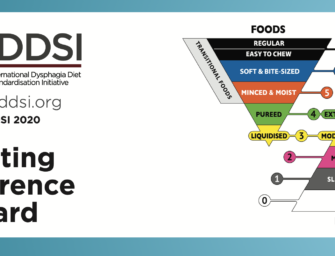Food Service In Mental Health Settings
In my experience, Psychiatric Patients are seldom served appropriately. The default position is a Trayed Meal, often large or double portions (due to medicine they are on driving a need to eat or the medical team wanting to satiate to subdue). However, a trayed meal does not help drive a therapeutic milieu akin to quality mental health care. In many cases, I have been personally involved with challenging the status quo and implementing bulk style dining for psychiatric patients in dining rooms with great success. In the same breath however, I note numerous facilities who have attempted a conversion from a trayed meal to bulk style dining only to retreat when Nursing gets fed-up and loses the motivation for change or Nursing is resistant because no one involved them in the change process to begin with.
Changing a meal service style is very difficult. The challenges are compounded in a mental health setting. Having a strong food service manager in place who communicates with Mental Health Staff in advance of making any changes is critical. The facility will have to invest time and money training food service staff on understanding Mental Health and verbal diffusion skills so that they can feel confident in front of Patients if they are to serve meals using a bulk meal service cart.
There are facilities specific to Mental Health and there are hospitals that have some dedicated Mental Health wards. In the case of the 100% Psychiatric Hospital there are more than likely some areas of care that cannot support a Bulk Dining Program (i.e. family style dining in a dining room using a Multigen and patient coming up to the cart and making choices). These areas may be places like high security areas and Acute Units (short stay) and in these case it would be appropriate for a trayed meal to be served (hot line or cook chill preparation style). In other areas however, we may see Chronic Care or Geriatric specialties of care where longer stays prevail and thus menu fatigue is always a factor, therefore, having a family style dining concept in these units allows patients a choice at time meal service and this will truly enhance the therapy they are getting. If a hospital has only a couple Mental Health wards, there is nothing to stop them from a implementing a similar ward based dining room style bulk meal service.
When bulk meal service is adopted, there are so many flexible ideas that can be reviewed to enhance the dining experience. For example, at Breakfast why not consider a buffet self-service breakfast approach with extended dining times. This would give patients considerable choice and a sense of control at the moment of dining. Secondly, the extended dining time would make things a little easier for nursing who have to get everyone up and ready for breakfast each morning. They may appreciate added flexibility. The meal plan would provide standard items each day and may even have a hot option available for everyone (cereal or eggs and bacon) in bulk. If items are standard each day then the preparation and set-up is easy for foodservice staff. It could easily resemble a bed and breakfast style set up one would see while traveling. It would encourage family style dining and help with the overall therapy and sense of normalcy.
The ideas are endless. With family style dining one can even encourage staff on the units to sit with patients during meal times as part of their therapy. It is highly suggested that the dining lounges are improved aesthetically (a little paint and color will go a long way, as will some paper table cloths, bread baskets, etc).
The menu can be slightly different than the rest of the house and can either be based on a selection of two entrees each meal or can involve patients to pre- select their entree the day before. Cold meals can be selected at ward level from a ‘soup of the day’ and cold menu of choices (juices, salads, desserts). There is a lot that can be done here and there are some good examples of facilities that have moved to locally assemble meals that you can learn from. All one needs is a little courage, creativity, and charisma to make a difference to those in need of special care.











